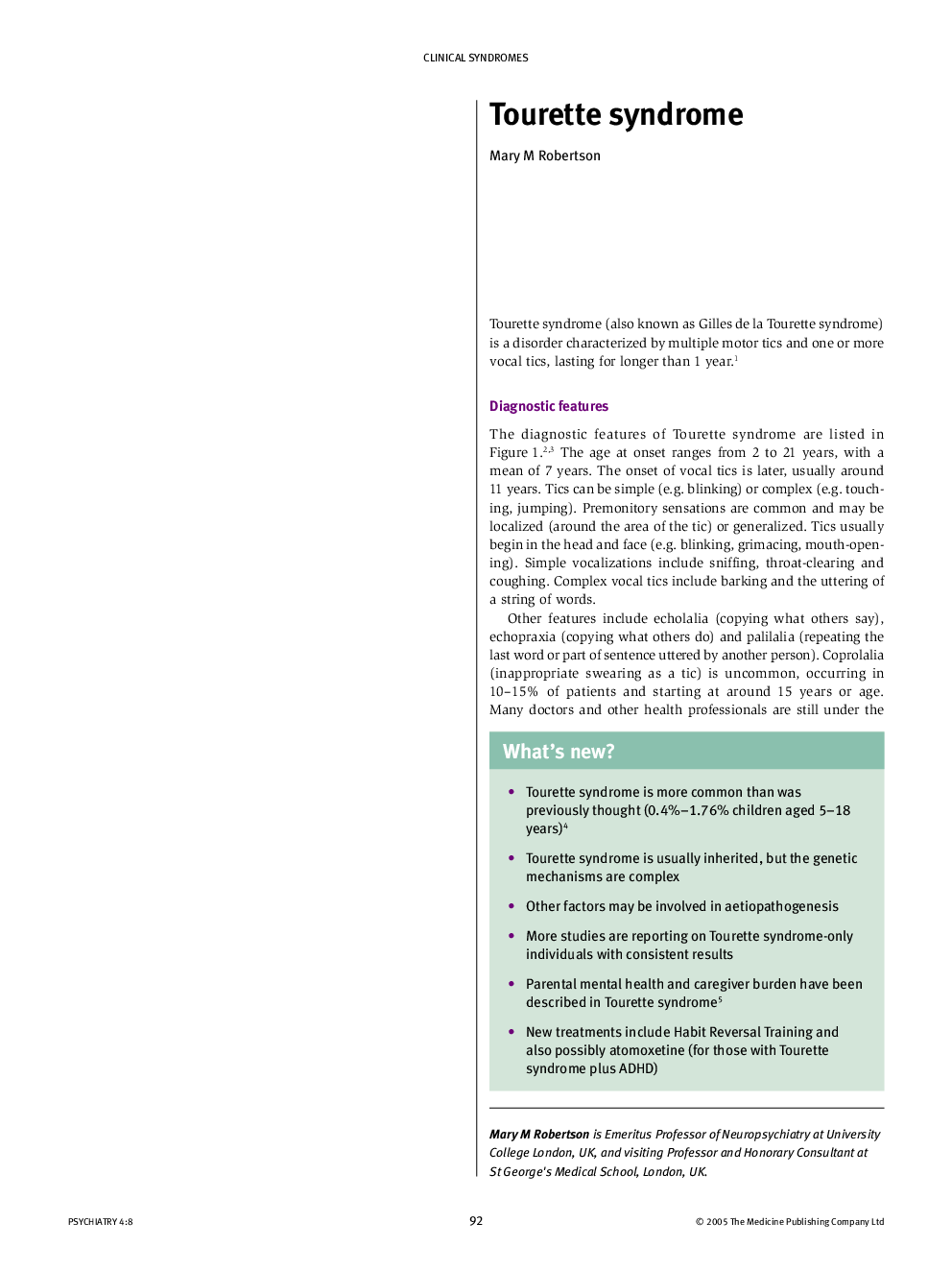| Article ID | Journal | Published Year | Pages | File Type |
|---|---|---|---|---|
| 9381830 | Psychiatry | 2005 | 6 Pages |
Abstract
Tourette Syndrome is characterized by multiple motor and one or more vocal tics. Once thought to be rare, many studies now suggest that the prevalence is about 1% of children aged 5-18 years. Psychopathology is common, occurring in over 80% of clinic cohorts. It is generally accepted that Tourette syndrome is inherited, but the genetic mechanisms appear more complex than they previously seemed to be, as evidenced by recent studies. Infections and pre- and peri-natal difficulties have also been suggested to be important in the aetiopathogenesis. Thorough assessment is imperative and multidisciplinary management is ideal. Treatment should be symptom targeted, and in mild cases, psycho education and reassurance for the patient and the family, may be sufficient. A newly described behavioural treatment is Habit Reversal Training, which is superior to psychotherapy. Medication may be necessary for more moderate individuals. In severe cases, the medical treatment is far from simple and referral to an expert may be advisable. Treatments that may be needed include Botulinum Toxin. The prognosis is better than once thought, particularly from the impairment point of view. One study has shown that parents of children with Tourette syndrome have increased mental health difficulties and care giver burden when compared to control parents. Literature on Tourette syndrome is increasing at an enormous rate and it is important to keep up to date with recent findings.
Keywords
Related Topics
Health Sciences
Medicine and Dentistry
Psychiatry and Mental Health
Authors
Mary M Robertson,
